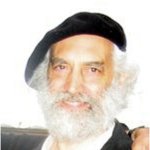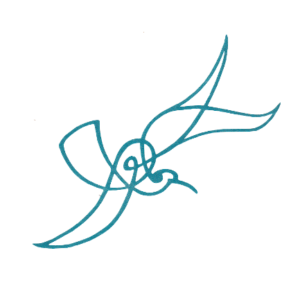METAPHORUM WEBINAR SERIES
November 2020 to August 2021
Access recordings by clicking link on the title
| Date | Speaker | Title |
| June 9th, 2021 | Markus Schwaninger | Covid19 Pandemic – Dealing with the Unpredictable: Crisis Management in a Federation |
| June 23rd. 2021 | Angus Jenkinson | What Is the Identity of an Organisation? |
| July 7th, 2021 | Panagiotis Panagiotakopoulos | The role of VSM in designing and managing future-fit organisations |
| July 21st | Alfonso Reyes A. | A new organisational from for a trans-disciplinary university. The case of Universidad de Ibagué |
| Aug 4th, 2021 | Maurice Yolles | Mindset agency theory. |
| Aug 18th, 2021 | Enrique Rivera | The Fourth World Cybernetics |
WITH RECORDINGS AND/OR PRESENTATIONS
November the 4th, 2020
Dr. Steve Morlidge
‘The VSM in 2020 – more relevant than ever?’
It has been said that Stafford Beer was 50 years ahead of his time. In this webinar Steve Morlidge will reflect on the relevance of the VSM from the perspective of someone dedicated to helping finance practitioners half a century distant after the first edition of Brain of The Firm was published.
Steve Morlidge 2020 Bio
General Management Thinker, Author, Speaker.
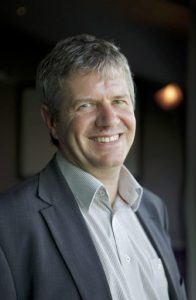
Steve Morlidge has 30 years of practical experience in designing and running performance management systems in Unilever, including three years as the lead of a global change project. He is a former chairman of the European Beyond Budgeting Round Table and now works as a management thinker, writer and speaker, drawing on his years of experience at the leading edge of performance management thought and practice. Steve Morlidge published Future Ready: How to Master Business Forecasting, John Wiley, 2010, ‘The Little Book of Beyond Budgeting’ and ‘The Little Book of Operational Forecasting’ through Matador in 2017 and 2018 respectively. His latest book ‘Present Sense: A practical guide to the science of measuring performance and the art of communicating it, with the brain in mind’ was published in November 2019.
He is on the editorial board of Foresight, a forecasting practitioner’s journal published by the International Institute of Forecasting to which he regularly contributes. He is also a cofounder of CatchBull, a supplier of forecasting performance management software and sits on the non-executive Board of the Beyond Budgeting Institute. Steve Morlidge is a visiting fellow at Cranfield University, Bedfordshire, UK and has a PhD from Hull Business School in Yorkshire, UK focusing on the application of systems concepts to the design of complex organisations. He completed his BA with honours, and he is a qualified management accountant (CIMA).
He can be reached at steve.morlidge@satoripartners.co.uk or steve.morlidge@catchbull.com
Topic: Dr. Steve Morlidge ‘The VSM in 2020 – more relevant than ever?’
Time: Nov 4, 2020 05:00 PM London
November 11th, 2020
Dr. Barry Clemson & Dr. Hans-Peter Plag
Monitoring the health of riverine systems
Description:
Riverine systems (also called watersheds or catchment basins) consist of interactions among geological features, plant and animal communities, water (precipitation, groundwater, lakes, wetlands, and flowing water), and human activities. These systems are both exceedingly complex and, when healthy, undergo essentially continuous transformations.
Riverine systems provide a number of critical services for humanity, including clean water and air and biodiversity. Earth Viability Center is a non-profit whose mission is to provide monitoring data for the world’s riverine systems. Our approach is based on Stafford Beer’s work. Specifically, we are developing seven key indicators (essential variables) which will be presented as time series. Each indicator will be a ratio between riverine system health and the actual state.
Because riverine systems are complex and in a state of constant flux, defining system health and selection of essential variables poses a number of issues. My webinair will discuss these issues and our progress to date.
Dr. Barry Clemson: Bio
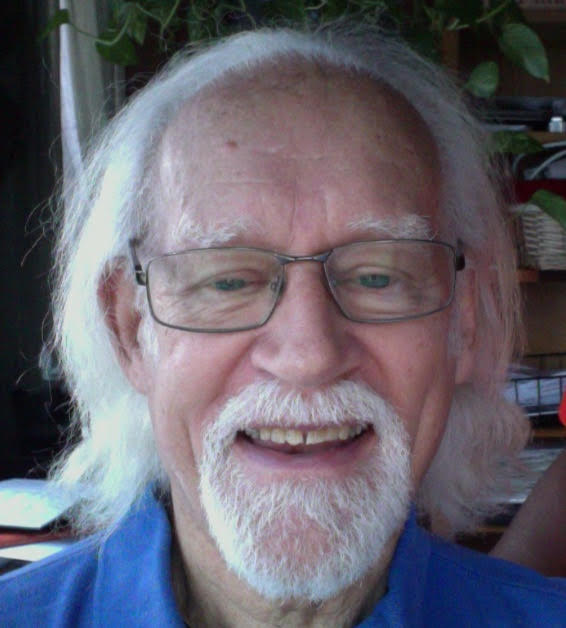
Stafford Beer was my most important intellectual mentor. I discovered Stafford during my MA (1967) and spent one whole year doing little other than studying Stafford and Ross Ashby. I then became very active in both the systems theory and the cybernetics societies (and served as president of the American Society for Cybernetics for two years).
Education
BA in Science, MA in Political Science, PD in Organization Theory (all from Penn State U), Theological study with the Ecumenical Institute for three years
Key Experiences
-
Community Development / Activism (Mississippi Freedom Summer, Chicago, India, Anti-war)
-
Technician in custom manufacturing
-
Software development focusing on automated tools
-
University teaching and research (Colleges of Education and an Engineering School)
-
Construction company (owner, carpenter, tree monkey)
-
Black belt in Aikido
Current Projects
-
Administrator for a small community church
-
Planning and design for a viable post collapse village in Alaska, with a focus on a library of how to do things
-
Earth Viability Center: Monitoring the health of the riverine systems worldwide as a tactic to hopefully help in healing our planet
Key Publications
-
Cybernetics. 1986.An introduction to Stafford Beers works. Published prior to syntegration. Includes a chapter on laws of cybernetics co-authored with Allenna Leonard
-
Denmark Rising. 2009. A novel that imagines 1940 Denmark understood what we now know about strategic nonviolence and that Denmark used that for a campaign of total resistance to the Nazis. The common reaction of readers is “I didn’t realize that nonviolence could be so effective against a Hitler”.
Dr. Hans-Peter Plag – Bio
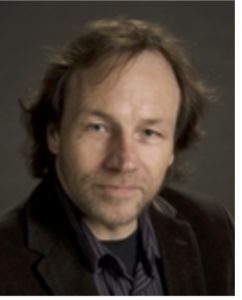
After some years as carpenter, Hans-Peter Plag studied mathematics and geophysics in Berlin and obtained his PhD in Natural Sciences in 1988 from the Free University of Berlin. From 1988 to 1997 he was head of a research group in geodynamics at the University of Kiel, Germany. During that time, he was also active in environmental movements and later a member of the Green Party. Among others, he was the lead author of a concept for waste reduction and recycling, which contributed to a significant reduction in waste and an increase in recycling. In his teaching, he introduced the students to the concept of sustainability and challenged them with the question of how Earth sciences can contribute to a successful quest for a sustainable development. In 1995, he worked for five months at the Proudman Oceanographic Laboratory, Bidston, United Kingdom. From 1997 to 2004 he was the head of the department “Global reference” at the Geodetic Institute of the Norwegian Mapping Authority in Norway, where he also was professor (mathematical models in geodesy) at the University of Oslo. From 2004 to 2012, he was a research professor at the University of Nevada, Reno, and affiliated with the Nevada Geodetic Laboratory and the Nevada Seismological Laboratory. From 2010 to 2016, he was a Visiting Professor at the Stevens Institute of Technology, Hoboken, NJ, USA. From 2012 to 2013, he held the Chair on Global Change and Sustainability and was the Director of the Global Change and Sustainability Research Institute (GCSRI), University of the Witwatersrand, Johannesburg, South Africa. In June 2013, he joined ODU as the Co-Director of the Climate Change and Sea Level Rise Initiative and Professor in the Department of Ocean, Earth and Atmospheric Science. Since March 2014, he is the founding Director of the Mitigation and Adaptation Research Institute (MARI) at ODU.
His main fields of expertise are in sustainability, global and climate change, local to global sea level changes, Earth system dynamics, solid Earth geophysics, the rheology of the Earth’s mantle and continuum mechanics, deformation of the solid Earth, space geodesy and geodetic reference frames. He has provided scientific advise to private companies and governmental committees, particularly with respect to future sea level rise. Between 1990 and 2010, he was engaged in utilizing space-geodetic observations for Earth system research, and he was vice-president of the Global Geodetic Observing System (GGOS) from 2003 to 2008. From 1999 to 2002, he was the President of a European COST action that resulted in the establishment of the European Sea Level Service, which he chaired until 2004. From 2002 to 2004, he was Vice-President of a European COST Action on the use of Global Satellite Navigation Systems (GNSS) for improved forecasts of extreme weather events.
Current main professional activities are related to the Group on Earth Observations (GEO), which is implementing the Global Earth Observation System of Systems (GEOSS). He is representing IEEE as a Participatory Organization in GEO. He engages in assessments of global catastropic and Anthropocene risks, including those related to plastics, land use, extinction, and modern climate change and sea level rise. His educational efforts focus on sustainability leadership, and he has been leading the development of an undergraduate and graduate program utilizing case studies in sustainability to create a real-world learning experience for students. He is on the Board of iCREST education initiative of the ICES Foundation. In his career, he has led more than fifteen large international projects, chaired international programs and committees, organized numerous international workshops and conferences, often as chair of the program and/or organizing committees, edited many special issues and proceedings, and coordinated and edited two international and interdisciplinary community reports with up to 40 participating authors. Since 1994, he is a member of the Editorial Board of the Journal of Geodynamics and since 1996 Editor-in-Chief for geodesy of Physics and Chemistry of the Earth. Since 2013, he is publishing the column “On the Edge” in ApogeoSpatial, where he comments, among others, on issues of global change, unsustainability, and global risk governance.
Topic: Dr. Barry Clemson & Dr. Hans-Peter Plag. ‘Monitoring the health of riverine systems’ Time: Nov 11, 2020 05:00 PM London
November the 25th, 2020
The Neo-Cybernetic Synthesis: Ashby’s True Legacy
Manel Pretel-Wilson
Though Ross Ashby is often seen as the consolidator of a field founded by Norbert Wiener and Warren McCulloch, in this webinar we are going to learn a different history of cybernetics, one that predates the institutionalization of cybernetic movement in the USA which culminated in Wiener’s Cybernetics (1948). In particular, though Ashby is known for his published work, Design for a Brain (1952) and An Introduction to Cybernetics (1956), this untold history of neo-cybernetics preceded the emerging field of cybernetics by over a decade of intensive work on the problem of adaptive behaviour founded on a great insight in 1932 and whose final answer, a general theory of cybernetics systems, can be found in his unpublished Journal (1928-1972). This webinar is based on Manel’s first book, Utopics: The Unification of Human Science (2020), published with Springer (https://www.researchgate.net/profile/Manel_Pretel-Wilson).
Manel Pretel: Bio
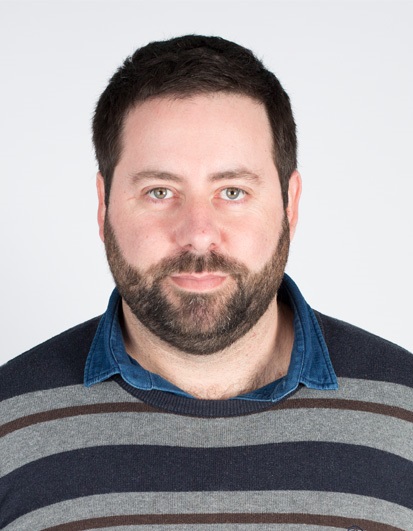
Manel holds two Bachelor Degrees from the University of Girona (Spain), Business Studies and Philosophy, two Masters Degrees, in International Political Economy from the University of Leeds and in Sustainability from the Polytechnic University of Catalonia, and a PhD in Systems Science from the University of Hull which he finished in May 2017. From 2007 to 2018, he has been a senior manager in different sectors in Catalonia and, in the last two years, he has started a career as an independent researcher and writer.
Topic: Dr. Manel Pretel-Wilson. The Neo-Cybernetic Synthesis: Ashby’s True Legacy Time: Nov 25, 2020 05:00 PM London
December the 2nd, 2020
Complexity and ignorance in the Information Society:
A new methodological approach
Dr. Czeslaw Mesjasz
In logical terms, the utterance “this is complex” is equivalent to the acknowledgment of ignorance of the observer. This observation is relevant to all situations, beginning from daily life and ending with applications of complexity science in all areas of studies. The challenge deriving from the role of ignorance and complexity has a special role in modern social sciences. From a philosophical point of view, the challenges of knowledge and ignorance are eternal. Their symbol is the declaration supposedly (?) made by Socrates: “I know that I know nothing.”
So what new can be said today about complexity, knowledge, ignorance in the studies of society? What are the new factors determining the increase in complexity and ignorance? How to answer to the above questions not being trapped in another level of complexity of complexity of explanations and another level of ignorance depicted with the famous sentence – I do not know that I do not know.
The paper includes the results of a book-size project, “Complexity and Ignorance in Modern Management.” The proposed conceptual framework is also applicable in other normative, action- oriented disciplines, e.g., economics or security studies. One of the sources of inspiration for the project is the popularity of the terms “chaos theory” and “edge of chaos,” showing how the incidental “catchy” names assigned to the classes of equations – chaos (Li and Yorke 1975) and “edge of chaos (Langton 1992) have a strong impact on theory and on policymaking.
The project results from the studies of applications of the ideas of complexity in social sciences with special stress put on normative, action-oriented disciplines – management, security studies and studies of environmental challenges. The project is developed with an awareness of limitations of the meaning of all terms – complexity, knowledge, and ignorance.
The main determinant of the increasing impact of ignorance on management and on social life is not a rapidly growing amount of produced and received information and knowledge called information explosion, information overabundance, etc. The equal, if not a bigger challenge, is to comprehend, or in a more general sense, to assign the meaning to those over-flooding streams of bits. In a broader interpretation, the sensemaking of this overwhelming flood of impulses is the main challenge to modern management. The development of Information Technology, and particularly, Artificial Intelligence, and its part, cognitive science, create another challenge.
As another determinant of the studies of complexity and ignorance is the development of social theory. Advanced mathematical modeling, post-modernism, post-structuralism, interpretative approaches also contribute to a higher level of ignorance. The first results of the project can be depicted as follows. In management, the ideas taken from complexity science include mathematical models, analogies, and metaphors (of course, a reference to the latter is a simplification). Thus as the first step, a typology of applications of the ideas of variously defined complexity in social studies is prepared. It embodies most of the cases of the use of the term complexity, beginning from Kolmogorov-Solomonoff-Chaitin ideas, through thermodynamics (the concept of entropy in the definition of information also means acknowledgment of ignorance), and ending with some purely metaphorical applications of the term complexity and associated notions in social sciences. Subsequently, a methodological framework is presented, which allows disclosure what could be unknown in all the above cases of applications of the terms complex and complexity.
The proposed methodological framework, which can be called CAISSA (Complexity-and Ignorance- Sensitive-Systems-Approach) will include two elements: identification of patterns of ignorance associated with the applications of the concept (utterance?) complexity in all the above-mentioned circumstances and the ways how this ignorance can be dealt with. Of course, any “naive”, far-reaching expectations are not presented. Just hope that the level of “negative” ignorance will be diminished and the level of “positive” ignorance (the more I know, the better I know what I do not know yet) will increase.
Czeslaw Mesjasz Bio
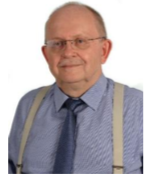
Associate Professor, Management Process Department, Faculty of Management, Cracow
University of Economics, 31-510 Kraków, Poland,
mesjaszc@uek.krakow.pl https://kpz.uek.krakow.pl/portal/en/content/department
Education:
-
Physics, M.Sc., Jagiellonian University, Cracow, Poland.
-
Organisation & Management, M.A., Cracow University of Economics, Cracow.
-
Ph.D. in Economics (Area of specialisation: Organisation & Management) – Cracow
University of Economics, Cracow.
-
”Habilitation” (Second Doctorate) – Cracow University of Economics/Ministry of
Science and Higher Education (Poland)
Research interests:
Management theory, strategic management; Conflict management and negotiation – business, economics and in international relations. Applications of systems approach in social sciences (management, security) (special stress put on complexity of social systems and the role of complexity in management). Econophysics – complexity of social systems (management systems). Theoretical foundations of corporate governance. Knowledge management. Project management.
Research activity: Some 300 publications and unpublished works in Polish, English. Works translated into Chinese, Danish, Spanish and Turkish. Papers presented at international conferences – later published in English language books and journals.
Scholarship/ International Cooperation:
Member of the: Polish Economic Association; International Peace Research Association (IPRA) – from 1990 until 1994 Convenor of IPRA Security and Disarmament Commission Co-operation with the International Economic Association (IEA) Member of International Studies Association (ISA); Academy of Management; European Academy of Management; International Sociological Association; Cooperation with NECSI (New England Complex Systems Institute), Cambridge, MA; Board of Arbeitsgruppe Friedensforschung und Europäische Sicherheitspolitik – Peace Research and European Security Studies (AFES-PRESS), Mosbach, Germany; Co-operation with the Millennium Project of the American Council for the United Nations University –questionnaire studies and projects assessment since 1998 (Results in the “State of the Future Report”) Cooperation with the Processes of International Negotiation (PIN) network, IIASA – International Institute for Applied Systems Analysis, Laxenburg, Austria; Board of the Econophysics Section of the Polish Physical Society
December 16th, 2020
Dr, Jonathan Huxley.
The Viability of Tribes
“The amazing thing that needs to be investigated is cultural stability, whenever and wherever it is found.” Douglas (1985: xxii)
Abstract:
In this Webinar Jonathan will propose a redrawing of the VSM that synthesises the concepts of autopoiesis, Luhmann’s Social Systems, Enaction, Friston’s consciousness, Social Identity Theory and the moral theories of Haidt and Greene, to provide a means of understanding how humans form social tribes. It will explore how and why tribes behave, why they have rituals and how they make use of emotions as a ‘language before language’ to make decisions. It will propose that tribes create narratives in a form of ‘viable language’ to maintain their cohesion and coherence and it will suggest that this provides a gateway for change management and political discourse.
Content:
System Thinking has been accused of failing to include motivation, intrinsic purpose and emotion in its application to human systems. It is a valid criticism. Even the ‘soft systems’ such as the various interpretivist and constructivist approaches of Checkland, Churchman and Ackoff fail to address issues of power, politics or coercive behaviour common in many real-world issues. These factors are highly relevant when we deal with social groups. System Thinking concepts of aligning weltanschauung, mutual construction of ‘root definitions’ or achieving consensus through the participation of the constituents in ‘interactive planning’ only work if the participants share deeper common interests, values and beliefs. In Psychology, Social Identity Theory has recognised a process of ‘de-personalisation’ between social groups in conflict that turns ‘we’ into ‘us’ and ‘they’ into ‘them’, so that not only do we belong to a group, we ‘become the group’ and employ ‘in-group favouritism’, trusting and believing our group members and dis-believing and distrusting others so that the alignment of beliefs becomes difficult and, at times, impossible.
So how do mutually constructed belief systems get formed, develop and persist, and can we align them? Is there a hierarchy of beliefs? Do some beliefs override others, and how easily can they be changed? What language do beliefs use? Are all of our organisations ultimately embedded in human systems and if so, do human beliefs form the System 5 of the highest levels of recursion of all our organisations.
To understand how social groups form, acquire beliefs, make decisions and maintain themselves this Webinar puts forward ideas that synthesise the theories of Maturana and Varela (Autopoiesis), von Foerster (Second order Cybernetics, eigen-behaviours), Luhmann (Social Systems, DiPaolo (Enaction), Eric Schwarz (Meta Models), Tajfel and Turner (Social Identity Theory), Joshua Greene and Jonathan Haidt (Moral Theory), and Feldman Barrett’s theory of ‘constructed emotion’ into a common construct based around Stafford Beer’s Viable System Model (VSM).
Why, when it is built on a framework of management cybernetics, should we use Stafford Beer’s Viable System Model to understand human systems? A model that has been accused of not adequately representing human behaviour. My answer is that the VSM represents, better than any other methodology, the processes of how stability is created and maintained, and it is stability, or rather its bigger brother, viability, that is the key factor that allows us a point of reference to compare and bring together the different viewpoints of social systems theories.
Stability, in a complex dynamical world is created by the circularity of its systems; their ‘autopoiesis’. It is only by isolating themselves from their environment by producing their own components that systems can achieve autonomy. However, as Beer showed, you need a meta-system to be able to ask the second order questions and to manage the emergence of a system of systems, to ‘see’ what that system is doing and to control it. In this way the VSM, with a little adaptation, can be used as a framework to bring together the many social theories and provide a comprehensive understanding of how groups work.
To adapt the VSM to better represent social systems, and synthesise the other theories, we have to show that it can answer several key questions, namely; how do humans make distinctions and decisions? what creates the boundaries of a social system? what structural coupling occurs and what is a group’s consensual domain? what is the hierarchy of beliefs? What part do emotions play in our own and our group’s interactions and how do we know right from wrong?
In the Webinar we will discuss these issues and I hope to show how we form ‘viable tribes’ based on a shared understanding of the current context of our environment. How we use beliefs to guide our decision making and how we use emotions as a ‘language before language’ to create a ‘viable narrative’ that underlies the consensual domain that structurally couples our tribe together. I hope to explain how homeostats balance the tension between harmony and discord in social beliefs. How the categorisation of what is harmonious and what is discord creates meaning in social groups and how rituals reinforce identity, often by demonstrating the tensions in the group’s processes of cohesion and how art plays a key role in a group’s ‘viable narrative’.
To conclude I will propose a way to dissolve the tensions between tribes using a ‘dialect method’ first proposed by Gharajedaghi.
Captain Jonathan Huxley RFA – Bio
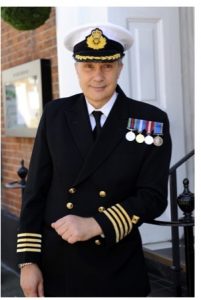
Jonathan Huxley has been at sea for 47 years of which 25 have been in command. During his career he has worked in a wide variety of theatres from the Mediterranean, South Atlantic, Gulf, Sierra Leone, Far East, Australasia, Caribbean, Antarctic and Artic as well as regular operations in the North Atlantic, Europe and UK waters. Undertaking amphibious, afloat support, maritime security, defence engagement, MCM support, aviation support, submarine support, OMAR and special operations.
He has commanded a wide variety of ships of all types from Fleet Tankers, Ammunition and Stores ships, Amphibious Ships, ROROs, Passenger ships and Mine Warfare Support Ships.
He is a qualified Master Mariner and has qualifications for; Royal Navy Specialist Navigation (SpecN), Navigation and Ship-handling Instructor, SRN4 Hovercraft Navigator, Advanced Polar Operations, Helicopter Controller, Flight Deck Officer and FLYCO Officer. He holds a degree in Mathematics and a PhD in Systems Thinking and specialises in the behaviour of groups and change management.
As well as command at sea Capt Huxley has undertaken shore appointments as a Navigating/Ship-handling/Seamanship Instructor at Flag Officer Sea Training, Operations Manager for the RFA Flotilla and two periods as a Strategic Change Manager in MoD and Navy Command, developing and introducing new manning, pay, operational and HR systems.
He has applied Stafford Beer’s Viable Systems Model to achieve practical results in change management and day to day operations, including development of an enterprise solution to shipboard management, and he has used the concepts of viability to help develop manning solutions and organisational decision-making processes.
February the 3rd, 2021
Prof Emeritus Michael C. Jackson
The Soul of the Viable System Model (VSM)
As long ago as 1992, I pointed to a battle for the ‘soul of the VSM’ between advocates of positivist, structuralist, and interpretive theoretical positions. It is clear that, as a model, the VSM can be put to different uses according to the philosophical inclinations of the user. This can be demonstrated if we examine the different methodologies that have been proposed for using the model in practice. It is nevertheless still worth asking questions about which philosophical and theoretical position the VSM is best equipped to serve, which makes the most coherent sense of it, and about Stafford Beer’s own views on the matter. The argument is developed on the basis of three traditions in cybernetics – first order, second-order, and ‘British’.
Dr Michael C Jackson OBE
Emeritus Professor
Centre for Systems Studies
University of Hull
(Latest book: ‘Critical Systems Thinking and the Management of Complexity’, Wiley, 2019)
Michael C. Jackson. Bio
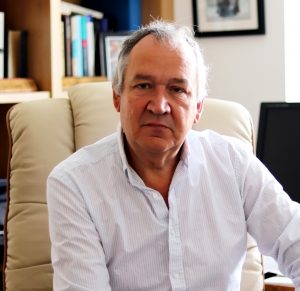
Mike is Emeritus Professor at the University of Hull, editor-in-chief of Systems Research and Behavioral Science, and MD of Systems Research Ltd. He graduated from Oxford University, gained an MA from Lancaster University and a PhD from Hull, and has worked in the civil service, in academia and as a consultant. Between 1999 and 2011, Mike was Dean of Hull University Business School, leading it to triple-crown accreditation. Mike has been President of the International Federation for Systems Research and the International Society for the Systems Sciences. He is a Companion of the Association of Business Schools, a Chartered IT Professional, and a Fellow of the British Computer Society, the Cybernetics Society, the Chartered Management Institute, the Operational Research Society and the International Academy for Systems and Cybernetic Sciences. Mike has received many awards, two honorary degrees, and has been a visiting professor at numerous international universities. In 2011 he was awarded an OBE for services to higher education and business. In 2017 he received the Beale Medal of the UK Operational Research Society for ‘a sustained contribution over many years to the theory, practice, and philosophy of Operational Research’. Mike is known as a key figure in the development of ‘critical systems thinking’ – a topic on which he has published ten books and over 100 articles. His latest book ‘Critical Systems Thinking and the Management of Complexity’ was published by Wiley in April 2019.
February the 24th 5:00 6:30 pm (UK)
Prof. Raul Espejo
“The Enterprise Complexity Model: An Extension of the
Viable System Model for Emerging Organisational Forms”
Abstract
An enterprise complexity model (ECM) is offered as a methodological tool for the actors of an enterprise to overcome complex environmental problems. The heuristic for this purpose is the viable system model, which guides an enterprise’s self-organization towards policies creating, regulating and producing sustainable development goals. Self-organization is grounded in correcting imbalanced interactions between an enterprise’s actors and their environmental agents, to increase their requisite variety to achieve sustainability, that is, to overcome environmental problems. The interactions between actors and agents are facilitated by current and emergent digital technologies, which support the structuring of collaborative networks. Reflexive interactions between the enterprise’s actors and agents in the problematic environment help their branching into all kinds of innovative organizational forms. The Viplan methodology is used to achieve this branching, which accounts for the enterprise’s complexity with the support of the Viplan method. Respect for the environment and quality of interactions are values driving this ecology of enterprises towards a deeper and wider appreciation of the issues besetting future generations.
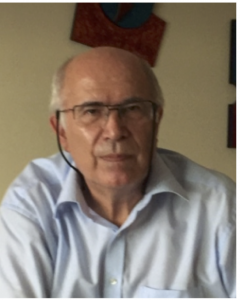
Raul is President of the World Organization of Systems and Cybernetics (WOSC) and Director of Syncho Research, UK. He is academician of the International Academy for Systems and Cybernetic Sciences (IASCYS) and Past Professor of Systems and Cybernetics at the University of Lincoln, UK. His research is in organisational cybernetics and systems. His most recent book is “Organizational Systems: Managing Complexity with the Viable System Model” (2011 in English and 2016 in Spanish (both with A. Reyes)). Has co-published five books and edited 7 special issues of journals, most recently in 2018, of Futures (“Futures of Society: the interactions revolution”). Has published over a 120 papers in journal and books. Has organised two of WOSC’s most recent world congresses in 2014 (Colombia) and in 2017 (Italy) and is organising the next world congress in Moscow in 2020/2021. From 1971 to 1973 he was operations director of the CYBERSYN project – the project of the Chilean Government for the management of the industrial economy, under the scientific direction of Professor Stafford Beer.
March the 3rd, 2021, 5:00 6:30 pm
Dr. Martin Pfiffner
The third dimension of organizing
In this webinar, Martin will speak about how managers respond to the introduction of the VSM, and how he approaches a VSM consulting project with a client, let’s say with a company of 3’000 employees in the building industry. He will also pose some questions on application issues and propose solutions. 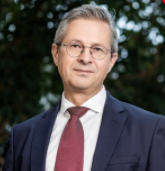
I came in touch with Stafford Beer in the 90ties through Fredmund Malik who I worked with. My first Syntegration was an International Licensee Event (TSI) at DeVoorde, Netherlands in 1997. From 1999 to 2006 I owned and managed Team Syntegrity Europe AG, a start-up company within the Malik group with the objective to develop, apply and spread Team Syntegrity in Europe. At the same time I started to study managerial cybernetics with Stafford with a focus on application questions of the Viable System Model. I built the “Management Cybernetics & Bionics” Division at the Malik group from 2006 to 2012 and organized three Cwarel-Isaf Conferences and the first Bionics-Conferences on Management. From 2013 to 2018 I changed my focus for a while, run a martial-arts school in Switzerland and published my experiences on the application of the VSM (Die dritte Dimension des Organisierens, 2020, Springer-Gabler). 2019 I co-founded the “Fondation Oroborus” where I am again consulting/applying and teaching management cybernetics. And I just became a fellow of the Cybernetic Society (UK).
March 17th, 2021, 5:00-6:30 pm
Dr Igor Perko
Invoking AI technology in organisations – a systemic examination
In this webinar Igor will address the introduction of AI technology in an organisation, proposing a systemic examination of structures, interactions and goals redefinitions related with introducing AI to the processes.
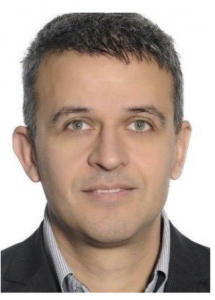
Igor Perko is an assistant professor at the University of Maribor, Faculty of Economics and Business, Slovenia. He is appointed as a director-general in World Organisation of Systems and Cybernetics (WOSC) and co-editor of Kybernetes, an JCR indexed scientific journal. His professional backgrounds include development of information systems in the financial industry, focusing on business intelligence systems, predictive analytics and risk management systems. He integrates information technology- based data processes with the concepts of management, systems thinking and cybernetics. His PhD thesis was “Intelligent agents in management information systems”. In his professional work with the students, he introduces management information systems, business intelligence tools and concepts based on: OLAP, predictive analytics, balanced scorecards and cyber-systemic thinking. He was running a Jean Monnet funded international summer school: “Big Data EU Business Implications”. In his research work, he is connecting the use of systems thinking, cybernetics, big data, predictive and prescriptive analytics, to provide value added in business, non-profit organisations and people. He is passionately involved in joining active people and organisations in the systems thinking and Cybernetics community through his activities WOSC. He is an author and editor of multiple professional and research publications, among them he co-edited a book “Cybernetics and Systems: Social and Business decisions”, based on the WOSC 2017 Congress contributions.
March 31st, 2021. 5:00-6:30 pm (UK time)
Dr. Raghav Rajagopalan
Meta Rational Ways of Knowing
This webinar is addressed to Metaphorum, a gathering of persons who celebrate Stafford Beer’s application of cybernetic principles to organisations and social systems. My exploration of systems thinking is composed of an equal fascination with two utterly diverse aspects: one – the mental models of cybernetics, with inviolable principles of information and control in recursively nested structures, and two – the fluid and amorphous mind of Gregory Bateson and (to my mind) related ideas of enactive cognition and anticipatory patterning. These two apparently distinct mental models are, in my opinion, both partial disclosures of a single overall reality we are trying to fathom. There are mysteries in these two aspects of reality and in the potential synthesis of these models, which enthral me. My talk today will focus on the second aspect alone: the fluid and amorphous aspects of knowing, which we usually ignore. I seek to share my take on the limits and possibilities of human understanding of complex systems, which can be powerfully multiplied by approaches that go beyond the rational-analytic framework. I come from an unusual vantage point: not that of a systems expert, but of a practitioner who has worked with very diverse communities – often unlettered and marginalised: tribal farmers, fisherfolk, artisans and performing artists. Several elements determine our orientation to knowing – which information patterns we seek to sense or pick up; what sorts of information – rational and affective – and how we cross-verify, calibrate and harness it all. These aspects of our approach to knowing, which vary across cultures and disciplines, can determine how deep our understanding of systemic behaviour patterns can go. Surprisingly, disciplines like action research and cultures outside of the mainstream West fare better (systems thinkers are part of this mainstream). These non- mainstream communities have developed sophisticated wisdom approaches which provide alternate ways of fathoming deeper systemic realities. My talk will proceed as a series of snapshots. These snapshots are facets of useful mental models I have located in sources outside systems thinking literature, which help us integrate additional forms of knowing into the rational-analytic approach to systems thinking. Harnessing the meta rational ways of knowing is, according to me, the most significant frontier now before systems thinking.
Raghav Rajagopalan is the author of Immersive Systemic Knowing: Advancing Systems Thinking Beyond Rational Analysis (Springer 2020: Contemporary Systems Thinking). He is a Visiting Fellow at the Centre for Systems Studies, Hull University; a Fellow of the European School of Governance, Berlin; and a Fellow of the Sumedhas Academy for Human Context, India. Raghav has a postgraduate specialization in Rural Management, followed by a doctorate in Systems Science. He was awarded the Margaret Mead Memorial Prize for an outstanding paper from his doctoral thesis at the 2014 International Society for the Systems Sciences Annual Conference in Washington DC. Raghav practices as a consultant in organisational and social development in India. He has experience in the diverse ways of knowing that the subcontinent has been famed for over centuries, involving practices such as yoga, meditation, various classical arts and handicrafts. Early in his career, his rural development practice required him to unlearn much of his formal professional training and relearn significantly from diverse marginalized communities such as artisanal fisherfolk, tribal farmers and artisanal craftspersons, resulting in a discovery of the profound value of multiple ways of knowing.
April the 14th, 2021, 5:00- 6:30 pm
Dr Angela Espinosa
Sustainable Self Governance:
reflections from the COVID19 Pandemic
In this seminar I will offer a brief introduction to Espinosa & Walker’s approach to sustainable self-governance. In particular, I will use this approach to reflect on the Covid-19 pandemic, and reflect on the early alarms that the pandemic is raising for us, at different levels of organisation, from the individual to the global level. Based on our recent experience during the pandemic, I will reflect, on how an individual, a business, a community, and a particular sector of the economy (the health sector) could identify ways to progress faster towards viability and sustainability in the current global crisis. The webinar is an invitation to engage in a fruitful conversation with the participants on ways to developing Stafford’s legacy on more innovative and also pragmatic approaches to sustainability and self – governance and to contribute to a better post Covid-19 society.
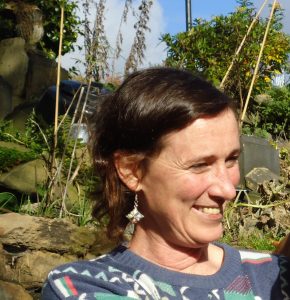
Angela graduated as a computer and systems engineer in 1981, and got a PhD on Organisational Cybernetics from Aston Business School, UK in 1995. She worked as the Director of the Secretariat of Information and Systems of the Colombian President’s Office (1990 – 1992) and as a consultant for major cybernetic government projects in Colombia in the 1990s. She is a (retired) Reader in Cybernetics, from the Centre of Systems Studies – Hull University, where she has taught systems and cybernetics in the MBA and the PhD programs (2002-2021). She has been a visiting Fellow in several international universities, and provided consultancy for both private and public organisations in Latin America and Europe. Her research is focused on applying cybernetics to support self -transformations towards improved resilience, viability and sustainability on businesses, communities and networks. She has published extensively books, research monographs, book chapters and papers in the European Journal of Operational Research, and other systems and cybernetics journals. Her recent book with J Walker, A Complexity Approach to Sustainability published by Imperial College Press (2nd ed.) summarises their recent work and applications. They have also co-founded and co-chaired the Metaphorum, an NGO developing Stafford Beer’s legacy since 2002.
Contact: angela.espinosa.salazar@gmail.com /a.espinosa@hull.ac.uk /
//angelaespinosa2.academia.edu
http://www2.hull.ac.uk/hubs/about/our-staff/allstaff/e/espinosa_a.aspx
April 28th, 5:00- 6:30 pm
Dr. Alfredo del Valle
The Participatory Workspace (PWS):
An online, complexity management and communications tool
The Participatory Workspace (PWS) is a post-Cartesian management and communications tool for organisations and networks, which streamlines the contributions of their members. It facilitates understanding and governing complexity through its “theme map” and other devices that are built via participation. As a powerful intranet: (a) it builds a rich, structured and easy-to access knowledge base, and updates it on a daily basis through members’ publications; (b) it makes members’ tacit knowledge explicit; (c) it replaces e-mails and WhatsApp’s and gives easy access to material from any date, without flooding cell-phones and computers; and (d) it gives visibility to the contributions from each member. The PWS has two components: a specialised online platform that is supplied as SaaS, and a participatory methodology for its customised design and implementation. The PWS is one of the tools of the Participatory Innovation Praxis (PIP). 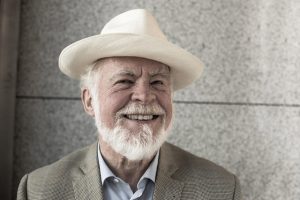
Alfredo del Valle lives in Viña del Mar, Chile. He holds a PhD in social systems sciences from The Wharton School, University of Pennsylvania; an MA is economics from New York University; and a civil engineer degree from Universidad Católica de Chile. He has been member of and consultant to business companies, universities, research centres, international agencies and government agencies. He is the author of the Participatory Innovation (PI) Praxis, a practical approach to high-complexity (“wicked”) problems and social transformations, based on systems thinking, complex thinking, Ashby’s Law, VSM, Schein’s culture formation theory and other contemporary sources. The PI Praxis includes its own principles, concepts, methods and tools; has been applied in a variety of fields at the local, national, Latin American and global scales; and has led to hundreds of innovations. Its most recent application is the model “Eco-Systemic Governance of River Basins” (ESGRIB), jointly developed with British and Latin American partners. Alfredo is the president of the Foundation for Participatory Innovation, which has been established for applying, transferring and disseminating the PI Praxis.
adelvalle@innovacion-participativa.org
www.innovacion-participativa.org
May the 12th 2021
Dr Allenna Leonard
A VSM reflection on US politics and democracy
Democracy in the West, with the United States as a recent example, is under threat due to its antiquated protocols and practices. Its Constitution, while innovative at the time, was written at the very start of the Industrial Revolution when communication traveled by horse and buggy. A look at US politics through the lens of the Viable System Model reveals issues at every level and at the delineation of recursions. It is not difficult to see how vulnerable it is to manipulation from special interests with deep pockets to squeaky wheel minorities. It is poorly protected from misinformation spread via advertising and social media, noise and the channel capacity of news organizations and individuals. Its ‘checks and balances’ can be abused to create gridlock; tribal party affiliations undermine the usual boundaries feedback loops and the prevalence of ‘alternative facts’ and ‘alternative realities’ make it difficult to find common ground of agreed facts. Some cybernetic remedies are suggested to improve some, but not all, of the deficiencies.
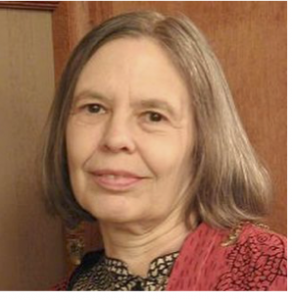
Allenna Leonard is an independent consultant in Toronto who worked with Stafford Beer from the early eighties to his death in 2002. She works with non-profit and business organizations applying cybernetic approaches and models, primarily although not wholly those of Stafford Beer. She is affiliated with the Cwarel Isaf Institute of Malik Management Centre in Switzerland that is applying Stafford’s VSM, Team Syntegrity process and Operations Room design as part of its business offerings. She currently president of Metaphorum and is a past-president of the American Society for Cybernetics and the International Society for Systems Science. Her work can be found at http://www.allennaleonard.com. Read about THE LEGACY OF STAFFORD BEER AND MANAGEMENT CYBERNETICS
May 26th, 2021, 5:00-6:30 pm (UK time)
Dr. Bernhard Sterchi
Alignment and autonomy on the last mile of execution –
in defense of the squiggly lines
The VSM is rarely applied at a level of behaviour in specific situations – what is done, what is said, how it is framed. What is missing in incomplete contracts, the last mile of execution where the usual tools of organising do not apply. This preference in focus is mirrored in the fact that many representations of the VSM omit the squiggly lines between various S1 operations. And yet, at this very level we experience the same tension between performance – the horizontal force – focused on contextuality, adaptability, and therefore on a certain autonomy of execution, and cohesion – the vertical force – focused on standards, co-ordination, and alignment. This talk explores the means of influencing this last mile, and scaffolding for alignment, without decreasing the necessary level of autonomy. It draws examples from the Ritz Carlton and Zara. 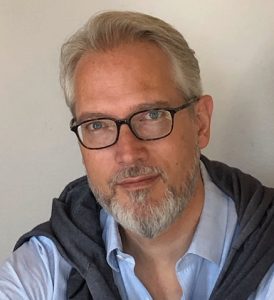
An historical anthropologist by training, Dr. Bernhard Sterchi supports leaders in improving their effectiveness in complex and dynamic contexts, as trainer, consultant, and coach. Based on a systems-oriented management approach, he has for this purpose developed a series of tools, notably for the alignment of leadership approaches in teams and for their effective communication within the organisation, for the analysis and transformation of the corporate mindset, and for the practice- and peer consulting oriented development of leaders. He has developed and delivered specific training concepts for agile and complexity-oriented leadership. He is founder and managing partner of Palladio Trusted Advisers, the author of Oblique Strategies for Leaders, and of The Leader’s Fairytales.
bernhard.sterchi@palladio.net
https://www.palladio.net
June 9th, 2021, 5:00-6:30 pm
PROF. Markus Schwaninger
Covid19 Pandemic – Dealing with the Unpredictable: Crisis Management in a Federation
Abstract
The management of coronavirus is usually viewed and commented on from an epidemiological, virological or economic perspective. We will demonstrate that the organisational dimension is equally important in this context. It is too often neglected. In a study which is close to completion, we explore the question of how the organisation for dealing with the Covid 19 crisis is working, how effective it is, and how it could be improved. The focus is on the corona crisis in Switzerland, which is a federalist system. Both our diagnosis and suggestions for design are based on the Viable System Model (VSM). The purpose of our study is to diagnose the status quo and make suggestions for organisational improvements to overcome the corona crisis. The study is also to learn for coping with future pandemics. Keywords: Pandemic – Corona – Covid-19 – Crisis Management – Organisation – Structure – Viable System Model 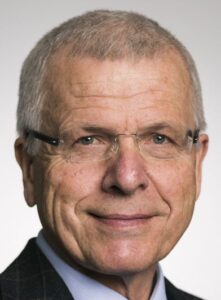
Markus Schwaninger, Emeritus Professor of Management at the University of St. Gallen, Switzerland. He is an international expert in Organizational Cybernetics and System Dynamics. His methodological position is transdisciplinary.
Research focus: Modelling and development of complex social systems, i.e. private and public organizations: for example, strategic and integrative management, organization design, management systems, organizational transformation and learning, sustainability issues. Long-term effort to build bridges between quantitative and qualitative methods, both in basic and applied research.
Mandates (Selection):
Academic at IACSYS-The International Academy for Systems and Cybernetic Sciences; Board Member;
WOSC-World Organization of Systems and Cybernetics;
Fellow of BCSSS-Bertalanffy Centre for the Study of Systems Science;
Managing editor, System Dynamics Review. Consultant and supervisor.
About 250 publications in 6 languages, including the book Intelligent Organizations published with Springer. For more information on Markus Schwaninger’s publications, please see:
https://www.alexandria.unisg.ch/view/pub_alex_user_id/502.html
June 23rd 2021. 5:00- 6:30 pm
Angus Jenkinson
What Is the Identity of an Organisation?
An organisation — company, NGO, government department — is always understood to have an identity but how this is described is very variable and how it is handled in VSM sometimes curious. Finance, marketing, HR et cetera approach it differently. Several systems theories approach it as a matter of practitioner definition of the system to be modelled. An autopoietic identity is related to organizational closure. The mouse running from a cat has the mousy equivalent of an existential experience. So how should we think about identity and how is this reflected in the methods of management and the use of tools such as VSM. The exploration will consider the possibility that an organisation is a social organism with its own non-arbitrary self-organizing inhering identity. It will ask how such tools as policies in VSM S5 relate to this as well as the extent to which identity cannot be confined to S5. What type of paradigm for the wholeness of an organisational entity is needed? How is this in turn related to its environmental ecosystem? In this context, what does it mean to be a chief executive and what do they (and other leaders) do? As time allows this will also question prevailing systems and complexity models. 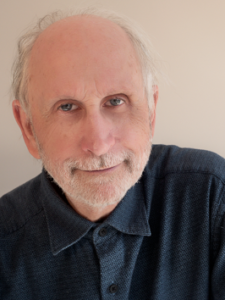
Angus Jenkinson has held executive positions in computing and software services, organisational consulting, creative industries, and is a Fellow and the Secretary of the Cybernetic Society. He has also held a UK chair in integrated marketing, relating to the enterprise-wide integration of value cocreation and taught Masters programmes in Britain, Europe and India. He provides consulting and light touch change design services through Thinking.Partners. His research field is Propriopoiesis, the self-organization of unique companies. He has consulted with scores of major firms across a variety of required services. He is also an exhibited photographer and a fellow or hon fellow of three professional institutions and member of two others.
July 7th 2021, %;)0-6:30 PM (GMT)
Dr. Panagiotis Panagiotakopoulos
The role of VSM in designing and managing
future-fit organizations
Abstract
This webinar will present some ideas of how VSM can help achieve sustainability at the corporate and organizational levels. First, corporate sustainability will be examined using a systems approach, as well as its business case. Then two ways VSM could be used to advance corporate sustainability will be presented: the first one employs VSM as a generic organizational map of existing organizations to understand, integrate and implement various sustainability management tools. The second one combines VSM with the Flourishing Business Canvas as part of a business startup or business model innovation process. 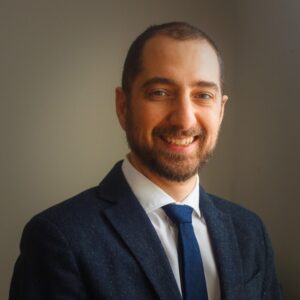
Panos is a sustainability professor, researcher, and consultant with 15+years of experience in coaching organizations to assess and integrate sustainability. As principal and founder of the boutique consulting Close the Loop, Panos has advised companies on sustainability strategy, climate change, life cycle assessment and business modelling. He has also provided training on these topics to professionals and students in Canada, Europe and Asia. Panos studied Environmental Engineering and holds a Ph.D. in Corporate Sustainability from Heriot-Watt University (Scotland). Panos is the coordinator of the Sustainable Business Management program of Seneca College and teaches sustainability and business design at the University of Toronto and OCAD University.
July 21st, 2021, 5:00-6:30 pm (GMT)
Prof. Alfonso Reyes
A new organizational from for a transdisciplinary university. The case of Universidad de Ibagué
Fragmentation is one of the main characteristics of modernity. Divide and conquer, tends to be the main heuristic to tackle complex problems. It has been a quite successful strategy to develop science and foster technology. However, at the same time it is the source of many unintended and undesirable consequences of human development: from global warming to social inequality. In a highly interconnected world, fragmented thinking is a recipe for disaster because problems arise as unsolvable dilemmas. The current management of COVID-19 pandemic is a dramatic example. It is widely accepted that complex problems cannot be fully understood from a specific discipline, we say that we need an interdisciplinary way of thinking to tackle them. I think, we need to go even further and approach them from a transdisciplinary perspective. This talk explores the role of universities to promote a trans-disciplinary thinking and acting. To achieve this, their main primary activities of teaching, researching and extension should be redesigned.
Alfonso Reyes is a physicist and a system engineer from Los Andes University. He has a MSc in Computer Science (University of Maryland), a PhD in Management Cybernetics (University of Humberside, UK) and postdoctoral studies in Organizational Learning (University of Lincoln, UK). He has worked for the last thirty years in addressing organizational problems in the public sector, especially in the administration of justice from a cyber-systemic stance. He has been an international consultant for the Interamerican Development Bank and the Agency for International Development (USA) in applying management cybernetics to the public sector. He has published several papers on individual and organizational learning and self-organization from the point of view of second-order cybernetics. He was the past president of the Universidad de Ibagué in Colombia (2009-2016) and a Dean of the Engineering School at Universidad de los Andes in Bogotá (2016-2020). He has been again appointed as president of Universidad de Ibagué starting on October 2020.
Aug 4th, 2021, 5:00-6:30 (GMT)
Prof. Maurice Yolles
A Takeaway from Yolles, M.I., Fink, G. 2021
A Configuration Approach to Mindset Agency Theory – A Formative Trait Psychology with Affect Cognition & Behaviour
This book explains psychological, socio-political and organisational change in multidisciplinary settings. It shows how advanced techniques of contextual analysis can be applied to complex situations and offers a new cybernetic agency paradigm based on living systems theory. It models, diagnoses and analyses complex, real-world situations to anticipate patterns of behaviour. Prof Yolles will offera a takeaway from his recent book (with M.I.Fink), with emphasis in Social Agency in Organisational Cybernetics. 